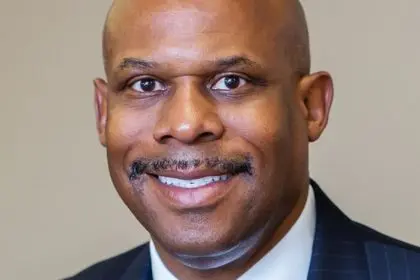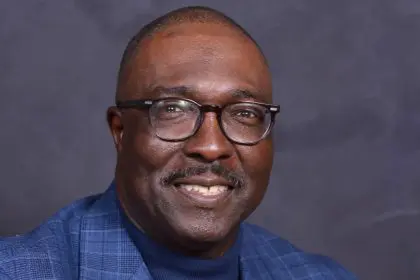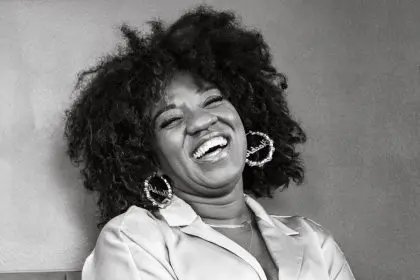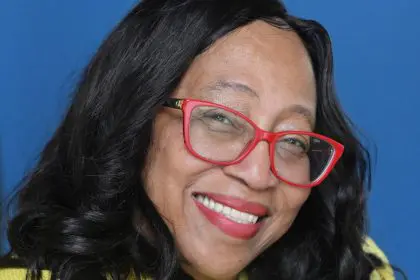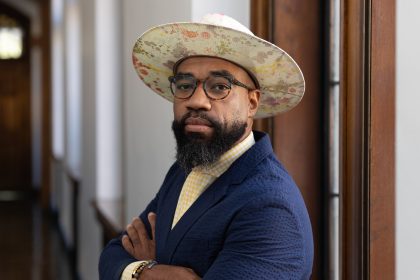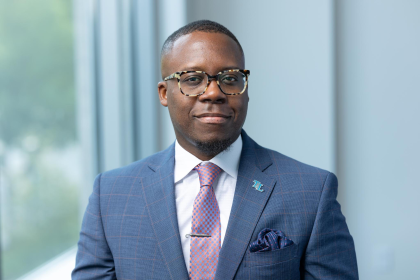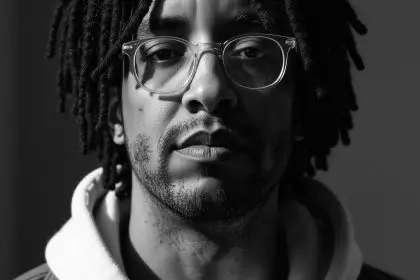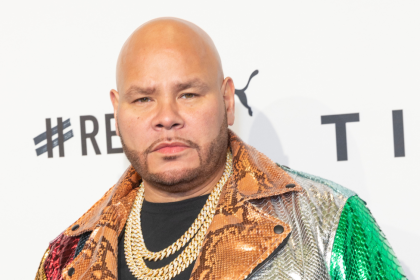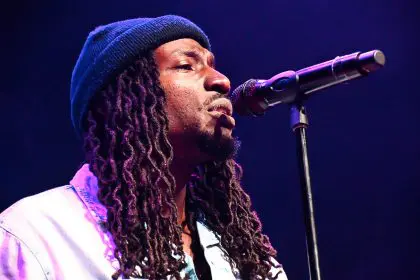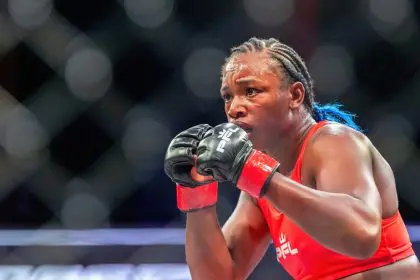Black Americans, especially young men and boys, account for the highest rates of deaths due to gun violence, according to the CDC. The Black community is tired of the constant news of someone dying due to gun violence, and it’s evident change needs to occur.
Ralph Clark is one of the people making that change as the president and CEO of SoundThinking, a system that focuses on providing law enforcement with innovative technologies to address violent crime, especially gun violence. Solutions include gunshot detection systems, investigative search engines, and resource analysis.
Gun violence is like a disease, and to truly address it, its root causes must be addressed, SoundThinking advocates for a holistic approach that goes beyond law enforcement and includes local community violence prevention groups, public health groups, educators, politicians and more.
How could your system have helped someone like George Floyd?
Policing is a profession that’s under a lot of pressure like a lot of institutions, particularly those institutions that are meant to serve and protect communities that are underserved and underrepresented at a lot of different levels. Our job and passion around our company is to lean in with law enforcement and help them become a better institution, help them become much more community-engaged, much more efficient, effective, and inequitable in terms of how they collaborate with communities and provide public safety. Sadly, the George Floyd situation is the result of one very bad cop who engaged in very bad behavior that was aided and abetted by some of the folks who were there. That’s the thing that we’re pushing up against. We’re trying to hold the law enforcement profession to be much more accountable and serving and protecting our communities.
What led you to become a CEO?
I was born and raised in Oakland, California. I grew up like a lot of people of color grew up with a very complicated relationship with law enforcement and when the opportunity came to chat with this company, I got a call from a headhunter. I was intrigued by what they were doing, because I was somewhat familiar with them being a resident of Oakland, California, and they provided the technology that we’re mostly known for, which is an acoustic gunshot detection technology that allows us to pinpoint with a high degree of accuracy, when and where gunfire is happening on a real-time, enabling a fast and precise response of law enforcement to those particular events. I was intrigued to learn more about how this technology works, and how it could be applied to holding police to be more accountable to serve and protect communities, particularly the ones that are victims of gun violence. I went down to chat with the founder, who was just an incredibly brilliant mathematician and engineer, but also an incredibly beautiful human being who had left his job at the Stanford Research Institute, where he was known as the father of using math to figure out the epicenter of things like earthquakes, and he had the idea that he can reimagine this technology to be applied to detect and to locate gunfire. I was intrigued and appreciated his passion, but didn’t have quite a vision of how we could take this technology and take it to the next level, so I spent some time with him before formally joining the company, and I went to a lot of community conferences and law enforcement conferences, and it became clear that this job was perfect for me and then I began to develop an idea about how we can transform the business model which had been a fairly old school model that wasn’t quite scalable, but make it into a more of a subscription base, affordable cloud-delivered solution that could be used by many law enforcement agencies and lean specifically in on how this technology should be used.
How important is it to evaluate and research something before you even start moving down the road of making change?
I think it’s incredibly important because I felt for me that if I was going to lean into something, I had to understand it. Before I could commit, I had to understand the ecosystem, I had to understand what was there, and what the investors would be willing to embrace with respect to changing because, in many ways, it was a fairly radical business model pivot that we had to engage in. That took a lot of thoughtful, intentional work around understanding the landscape, and where the limitations were. The thing that I noticed was in approaching this particular industry with a fresh set of eyes, I had particular insights that the previous folks inside the company had blind spots because they had just been so embedded in this. So I could kind of come in and ask a lot of naive questions, but in asking those naive questions, came to a much better understanding of the state of things and the challenges that we would have in moving the business forward.
What was it like to take a company public?
The thing that I learned was in taking the company public, it’s one thing to be an agent and it’s another thing to be a principal. Although I was very involved in kind of setting up the road shows and having one-on-one meetings and listening to them, I realized that as an agent, I could almost kind of take a nap while the person was giving the pitch to investors. As a principal, you can’t do that. You are selling the company to investors, and for me, particularly being an African American CEO, they hadn’t seen that before. They hadn’t seen very many Black CEOs come in and pitch the company. I think my passion for the business was so evident to investors that we were fortunate enough to get some investors that aligned with not only our business prospects but our moral prospects as well, and I’m proud to say these are the investors that we had in our IPO and are still with us today. It’s been quite an interesting journey.
What are three things you would challenge future Black CEOs to do?
First, you have to have confidence. Have 100% confidence that you can do the job and that you’re up for the task, you shouldn’t have any doubt about that, but you also need to be prepared. There’s confidence, there’s preparation, and then I think the third thing I would add is to have persistence because there’s no such thing as a linear path to anything. It’s one step forward, two steps back, three steps forward, you’re gonna make a left-hand turn, you’re gonna make a right-hand turn. But if you have persistence, you kind of push through, and you look at the overall arc. The overall arc goes up, but it’s just not a straight line. You can’t be deterred, or you can’t lose confidence, or just give up very easily. You just have to be persistent, but then you also need to be prepared.
How important is it to place yourself in the right position today?
I think a lot of that has to do with kind of preparation and being in the right place at the right time. Reading the room is incredibly important. We have a superpower that the majority of folks don’t have and our superpower is that we have to be able to read the room. We know where the supporters are. We know where the haters are. We know who’s with us. We know who’s not with us, and being able to understand that is an incredible superpower. That empathy gene and being able to have high emotional intelligence is a superpower. If you’ve made it from where you are to graduating college and having your professional job, you’ve exercised that superpower time and time again.
How have you acquired your knowledge and information as a CEO?
I think being constantly curious, is incredibly important, and recognizing that knowledge acquisition comes from the most interesting places in the world. You can’t be too selective in terms of where you acquire knowledge. I like talking to people and I love traveling to different cities. The thing I’m always purposeful about doing is talking to the driver, whether I’m jumping in a cab or catching an Uber. I’m talking to that Uber [driver] about that city and asking where’s he or she from. Where’d they grow up? Where do they see the issues? I [have] learned so much from those cumulative conversations that take place over time.
Why should mayors be pushing for your company to provide services as a mandate for solving community harm?
Gun violence is probably the civil rights issue of our particular generation. The way it disproportionately impacts persons of color, particularly young persons of color, is incredibly damaging. We are putting at risk entire generations and populations of folks that are directly impacted by gun violence in terms of showing up as a homicide, or gunshot wound victim. I think we have to also pay attention to the vicarious victimization that takes place from people who are emotionally damaged due to gun violence, because they’ve had a brother, uncle, or father that has fallen to or been directly impacted by gun violence, either through a homicide or through a being a gunshot wound victim. There’s no single solution that could address gun violence, I think it’s an all-hands-on-deck approach, I think we play a very valuable role in restoring our acoustic gunshot detection system to address the technology gap that exists with 80% or 90% of gunfire going unreported. If you have guns being fired, and people being victimized, but yet there’s no call for a service through the traditional 911 system to get first responders to the scene that are more likely to be able to successfully intervene with a gunshot wound, that they’re more likely to be able to recover evidence that can be useful for downstream investigations. The most important thing is showing a community that police are showing up and that they care enough to respond.

